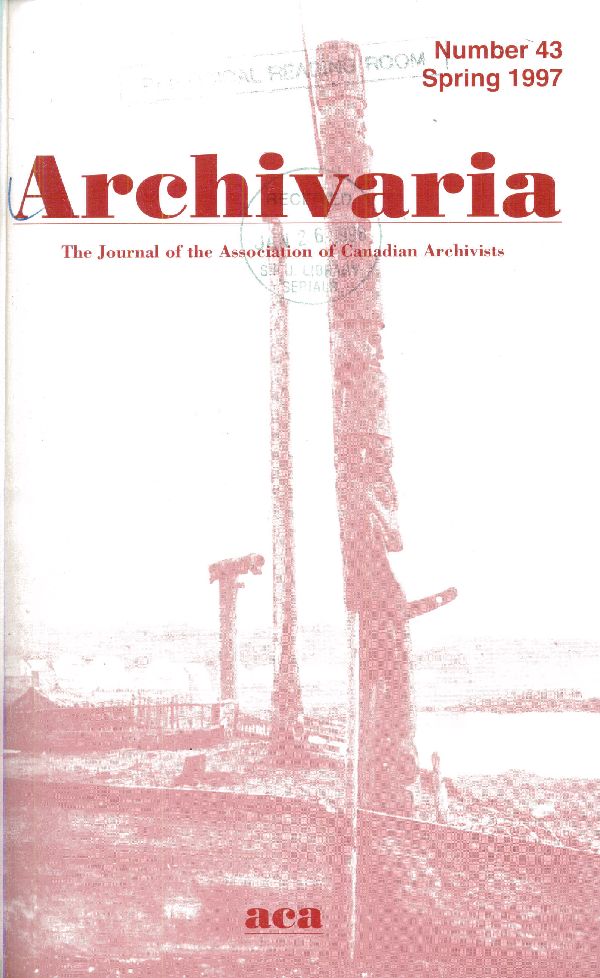What is Past is Prologue: A History of Archival Ideas Since 1898, and the Future Paradigm Shift
Abstract
This essay analyzes the history of archival thought since the publication of the Dutch Manual a century ago and suggests that from this inspiring past a new conceptual paradigm is emerging for the profession. Ideas of leading or symbolic thinkers within the European, North American, and Australian archival traditions are considered within the context of their times. The focus is on those theorists able to recognize and articulate radical changes in the nature of records, record-creating organizations, record-keeping systems, record uses, and in the wider cultural, legal, technological, social, and philosophical trends in society, as well as the impact of these changes on archival theory and practice. That articulation forms our collective discourse, the metatext or narrative that animates our professional practice, and from it five broad themes are seen to emerge from the evolution of archives over the last one hundred years. For the future, the trends of the century suggest the need to reconceptualize traditional archival principles from a product-focused to a process-oriented activity, to preserve in the best manner the collective memory of nations and peoples.
RÉSUMÉ
Cet essaie analyse l'histoire de la pensée archivistique depuis la publication du Manuel hollandais il y a un siècle. Il suggère qu'un nouveau paradigme émerge au sein de la profession sur la base de ce passé inspirant. Les idées des principaux penseurs des traditions archivistiques d'Europe, d'Amérique du Nord ou d'Australie sont considérées dans le contexte de leur époque respective que leurs contributions aient été de premier plan ou symboliques. L'accent est mis sur ces théoriciens qui ont su reconnaître et articuler les changements radicaux affectant la nature des archives, les créateurs d'archives, les systèmes de gestion des documents, l'utilisation des archives, ainsi que les mutations de société à survenir dans les domaines culturel, juridique, technologique, social et philosophique qui ont eu une influence sur la théorie et la pratique archivistiques. Tout cela s'imbrique aujourd'hui dans les différents types de discours qui sous-tendent la pratique professionnelle. Des lors, on voit cinq thèmes émerger de l'évolution de l'archivistique au cours des cent dernières années. Les tendances actuelles suggèrent qu'il faut revoir les bases conceptuelles des principes archivistiques traditionnels pour mettre davantage l'accent sur le processus plutôt que sur le produit en vue de mieux protéger la mémoire des nations et des personnes.
Authors of manuscripts accepted for publication retain copyright in their work. They are required to sign the Agreement on Authors' Rights and Responsibilities that permits Archivaria to publish and disseminate the work in print and electronically. In the same agreement, authors are required to confirm that "the material submitted for publication in Archivaria, both in its paper and electronic versions, including reproductions of other works (e.g. photographs, maps, etc.) does not infringe upon any existing copyright." Authors of manuscripts accepted for publication retain copyright in their work and are able to publish their articles in institutional repositories or elsewhere as long as the piece is posted after its original appearance on archivaria.ca. Any reproduction within one year following the date of this agreement requires the permission of the General Editor.





